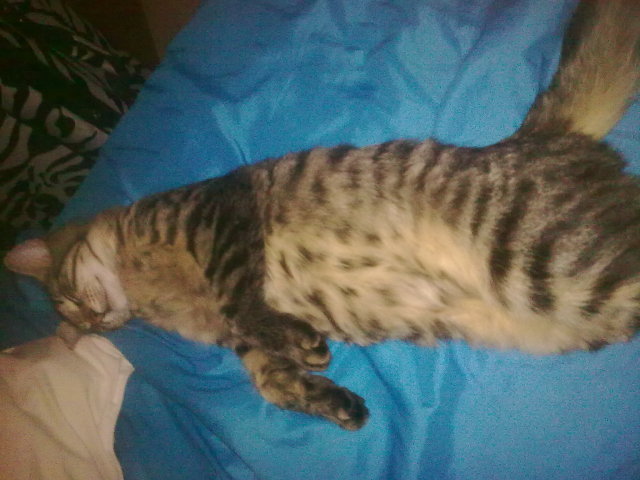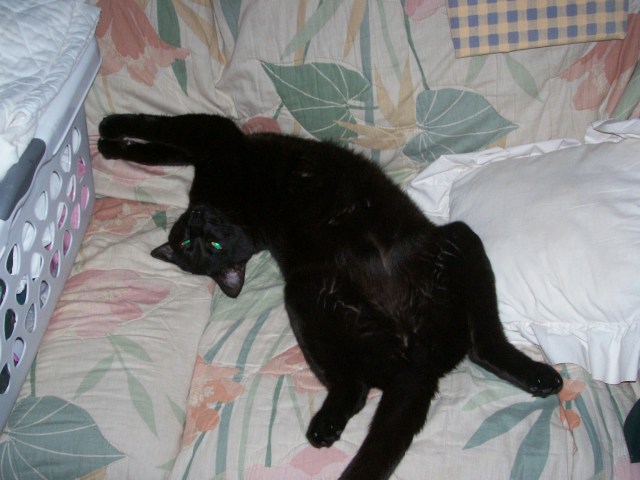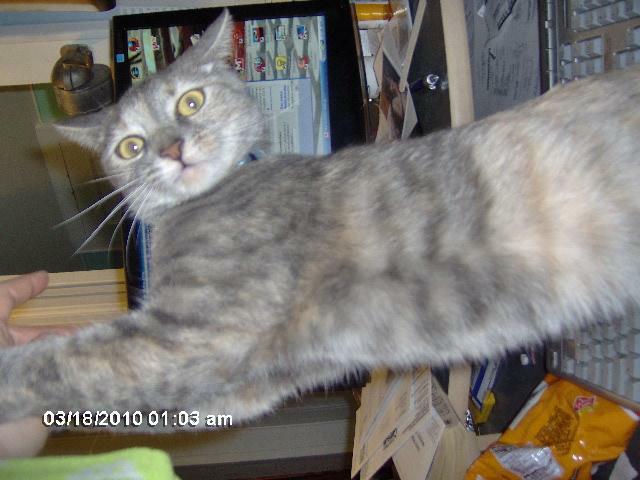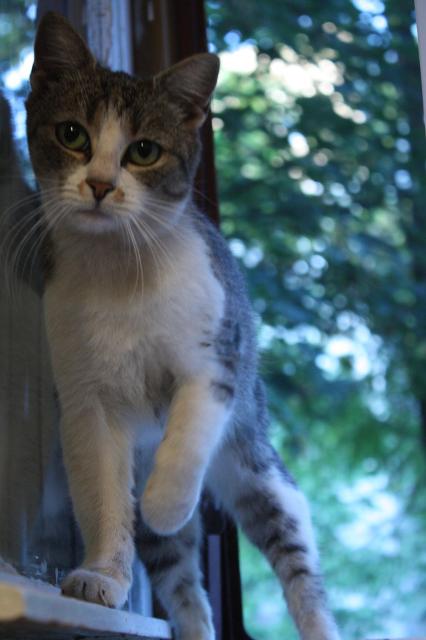QuestionHello there. I own two bengals one a petshop buy the other a pedigree. Our youngest the pedigree we probably should not have bought her due to the conditions of the cattery it was beyond discusting but I just didn't want to leaver her there. She came with all sorts of health guarentees but has been sick since we bought her. I Have taken her to two different vets who offer two completely different diagnostics without doing any real tests to be sure. one said she has herpes (which she would have been born with) the other says it's a virus. When we bought her she had had her fist vaccination her second and fiv vaccinations were late because she got catflu really bad 3 days after we brought her home. runny nose runny eyes coughing sneezing the works it hit her pretty hard. Well we went to the vet got some antibiodics to help her symptoms and about 4 days later we had improvement for about 2 days then she went chronically sick again.. back to the vets got another 2 weeks worth of antibiodics and about 3 days later she came good but the nose has never stopped. Its always a dry casing over her nose I usually have to pick it off for her in the morning so she can breathe better. She often makes grunty snorting noises when shes breathing especially during play times. even when she breathes through her mouth. her mouth is clear of ulsers she has a health appitite, health poops,strong white teeth very active, shiny coat she is now 8 months old. Both cats are fed on a raw meat grain free diet they eat mostly beef mince with chopped up ox heart in it and chicken necks to help with their teeth and jaw strength. I'm a full time student and have already spent hundreds on vent bills its really hard but I don't care how much I spend I just wish someone could give me a deffinate answer. I suggested allergies once but the vets wouldn't even consider it.
AnswerHi Samantha,
Actually, I think you probably have received the proper diagnosis. Unfortunately, there is so much misconception about the illness that it becomes very confusing.
Feline herpes actually is a virus. The virus can be passed from their mother to her unborn kittens, but most often, it's passed shortly after birth. Cats infected with the herpes virus become permanent carriers of the germ. Symptoms of the disease include sneezing, swollen eyes, eye and nasal discharge, and sometimes corneal and mouth ulcers. When the cat exhibits these symptoms, she is sometimes said to have "cat flu." This is another term for a herpes flare up. When the flare up subsides, it means the body has suppressed enough of the virus to control symptoms. But the cat is never fully cured, and symptoms will flare up again from time to time.
For some cats, the immune system has a really difficult job suppressing the virus, and the cat always lives with some symptoms. The best treatment for these cats is to give them a supplement called lysine. This will support her ability to build antibodies and will prevent herpes from replicating in her body. There are many cat-specific lysine products available, such as Viralys and Enisyl products.
My Bengals both had very serious herpes problems as youngsters, too, and I have heard this from many Bengal owners. While it has not been stated to be a problem in this breed yet, some breeds are prone to upper respiratory infections, and I have to wonder if this will prove itself to be true in the Bengal as the breed is established for a longer time. At any rate, as with most cats, my Bengals both suffered much less with it as they grew into mid-adulthood and their immune systems matured.
One thing to remember - a very bad cat flu as a kitten can cause inflammatory tissue in the nasal passages that will cause the nose to be chronically stuffy, even once the infection is subsides. In this case, sometimes a steroidal nose drop can help.
Allergies could be a possibility, but since cats usually have itchy skin as a response to allergies, your vets are probably stuck on the most common explanation. However, there are some antihistamines that are safe for cats, so push that issue with the vet if it's something you'd like to pursue.
Best wishes!
Jessica

 cat in labour
Questionxena last night
QUESTION: Hi!
I have a
cat in labour
Questionxena last night
QUESTION: Hi!
I have a
 Strange litter tray behaviour
Question
Edgar
I have a beautiful two year old n
Strange litter tray behaviour
Question
Edgar
I have a beautiful two year old n
 cat breed?
QuestionQUESTION: I have a solid black male cat, and I
cat breed?
QuestionQUESTION: I have a solid black male cat, and I
 my cat is REALLY long, like a weasel!
QuestionQUESTION: Im hoping you can help me identify my
my cat is REALLY long, like a weasel!
QuestionQUESTION: Im hoping you can help me identify my
 Cat meaowing after spayed
QuestionQUESTION: Hello, I am having a problem with my
Cat meaowing after spayed
QuestionQUESTION: Hello, I am having a problem with my